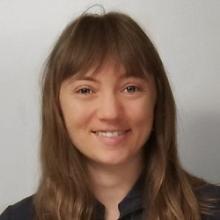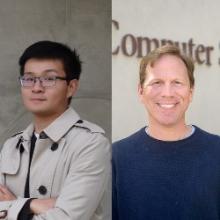
Jan 19, 2022
Two UC San Diego Computer Scientists Named as 2021 ACM Fellows
By Katie E. Ismael Two computer scientists from the University of California San Diego have been elected as fellows of the Association for Computing Machinery (ACM), the association announced today. They are among the 71 new fellows recognized by the ACM, the world’s largest educational and...Read More

Jan 13, 2022
Computers in a Jazz Ensemble? Inventing Improvisational AI
By Josh Baxt Go to any jazz club and watch the musicians. Their performances are dynamic and improvisational; they’re inventing as they go along, having entire conversations through their instruments. Can we give computers the same capabilities? To answer that question, University of...Read More

Jan 4, 2022
Long-Reads and Powerful Algorithms Identify “Invisible” Microbes
By Josh Baxt Microbes are everywhere – in our guts, on our skin, permeating the environments around us. Studying these microbial communities has delivered tremendous insights into disease and good health, but identifying all the distinct species in a sample can be challenging. Now, a study by...Read More

Dec 20, 2021
Router in Your Home Might Intercept Your Internet Traffic-But it May be For Your Own Good
The router in your home might be intercepting some of your Internet traffic and sending it to a different destination. Specifically, the router can intercept the Domain Name System traffic --the communications used to translate human-readable domain names (for example www.google.com) into the...Read More

Dec 20, 2021
The Newest Deep Minds of UC San Diego’s CSE
By Katie E. Ismael UC San Diego’s Computer Science and Engineering Department (CSE) is proud to introduce the newest class of DeepMind Fellows. These fellowships were made possible by a generous gift from DeepMind, a London-based leader in artificial intelligence (AI) research and how it’s...Read More

Dec 13, 2021
Imani Munyaka: Improving the Human Experience
By Kimberley Clementi We are all vulnerable to cybersecurity threats. It’s endemic to our digital era. Still, an individual’s race, gender or age could increase their susceptibility – especially in specific settings. So might a physical disability, cognitive impairment or even one’s...Read More

Dec 10, 2021
Shape-Shifting Accelerator Chips Offer Greener Way to Meet AI Demand
By Josh Baxt Computer scientists at the University of California San Diego and MIT will be developing a new generation of multi-tenant, fast, efficient and environmentally friendly accelerator chips to help meet exploding demand for artificial intelligence thanks to a new grant from the...Read More

Dec 7, 2021
Who's Got Your Mail? Google and Microsoft, Mostly
By Ioana Patringenaru Who really sends, receives and, most importantly perhaps, stores your business’ email? Most likely Google and Microsoft, unless you live in China or Russia. And the market share for these two companies keeps growing. That’s the conclusion reached by a group of computer...Read More

Dec 6, 2021
This Framework Will Improve the Security of all Firefox Users
Researchers from the University of California San Diego, the University of Texas at Austin, and Mozilla have designed a new framework, called RLBox, to make the Firefox browser more secure. Mozilla has started deploying RLBox on all Firefox platforms this week. RLBox increases browser security by...Read More

Dec 3, 2021
The Core of Powerful, Power-Efficient Processors
By Katie E. Ismael The high-performance yet low-power processors running billions of today’s laptops and mobile devices come thanks to research by computer scientists at the University of California San Diego and HP Labs. Their work, which began nearly two decades ago, has influenced the...Read More

